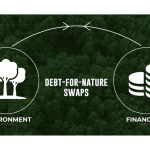Executive Summary
This case study assesses how three Kenyan companies are adapting to global ESG reporting requirements. The analysis highlights emerging trends in sustainability disclosures, including increased transparency, integration of ESG into core operations, and the adoption of international reporting frameworks. It also provides recommendations for businesses aiming to align with evolving global ESG requirements.
Introduction and Background
Global ESG regulations like the EU's Corporate Sustainability Reporting Directive (CSRD) and IFRS S1/S2 are reshaping corporate reporting, pushing companies to prioritize sustainability and transparency. In Kenya, NSE’s 2021 ESG guidelines have urged listed firms to disclose sustainability metrics, with about 46% compliance by 2025. Investor pressure, regulatory demands, and global competitiveness are driving Kenyan businesses to align with international ESG frameworks such as GRI and TCFD. Regulatory bodies like NSE and CMA are also encouraging integration of ESG in corporate reporting. This case study explores how three Kenyan companies are adapting to these evolving standards.
Data and Analysis
1. Safaricom
ESG Strategy: Safaricom has adopted the Global Reporting Initiative (GRI) standards and aligns with the United Nations Sustainable Development Goals (SDGs).
Key Initiatives:
Environmental: Commitment to achieving net-zero carbon emissions by 2050, investment in renewable energy, and e-waste management programs. Reduced Scope 1 & 2 emissions by 12% in 2024 via solar-powered sites and e-waste recycling.
Social: Extensive community programs, including digital literacy initiatives and support for education and healthcare. Launched “DigiFarm” to empower 2M+ smallholder farmers with agri-tech tools.
Governance: Strong anti-corruption policies, diverse board representation, and transparent reporting. Follows strict governance policies and robust risk management aligned with international best practices.
Trends: Safaricom’s ESG reports are increasingly detailed, with a focus on measurable outcomes and third-party verification.
2. East African Breweries Limited (EABL)
ESG Strategy: EABL focuses on sustainable sourcing, reducing environmental impact, and promoting responsible consumption. The company aligns with the GRI and SDGs.
Key Initiatives:
Environmental: EABL emphasizes water conservation, energy efficiency, carbon footprint reduction and reducing plastic usage as part of its sustainability agenda.
Social: Empowerment programs for farmers, support for local communities, and responsible drinking campaigns.
Governance: EABL has adopted transparent reporting, ethical sourcing policies and stakeholder engagement, along with robust ethics and anti-corruption policies.
Trends: EABL is leveraging technology to enhance ESG data collection and reporting, ensuring greater accuracy and transparency.
3. Kenya Electricity Generating Company (KenGen)
ESG Strategy: KenGen, a leader in renewable energy, emphasizes environmental sustainability and community engagement. The company reports using the GRI framework and the Task Force on Climate-related Financial Disclosures (TCFD), with a focus on the SDGs and the African Development Bank's (AfDB) Sustainability Standards.
Key Initiatives:
Environmental: Expansion of geothermal and hydroelectric power projects, reducing reliance on fossil fuels.
Social: Community development programs, including water access and education support in areas near its operations.
Governance: Strong focus on ethical practices, risk management, and stakeholder engagement.
Trends: KenGen is increasingly disclosing climate-related risks and opportunities, reflecting global investor demands for climate transparency.
Key Findings
- Adoption of Global Standards: All three companies are aligning with international reporting frameworks such as GRI and TCFD, demonstrating a commitment to global best practices.
- Focus on Measurable Outcomes: There is a growing emphasis on quantifiable ESG metrics, such as carbon emissions reduction and community impact, to enhance credibility.
- Growing ESG Integration: Kenyan companies are embedding ESG in core business strategies, with a focus on climate action, social impact, and ethical governance.
- Focus on Financial Inclusion and Community Impact: Social initiatives, particularly those targeting marginalized groups (e.g., SMEs, women), are a major part of ESG strategies.
- Sustainability Reporting as a Competitive Advantage: Early adopters of ESG reporting are positioning themselves favorably for international investors and partnerships.
Recommendations
- Adopt Global ESG Standards: Companies should align with recognized ESG frameworks to boost transparency, credibility, and investor confidence.
- Build Internal ESG Capacity: Organizations need to train staff and leadership on ESG principles and reporting for effective sustainability management.
- Leverage Technology: Utilize AI and digital tools to streamline ESG data collection, analysis, and reporting.
- Strengthen Stakeholder Engagement: Communicate ESG progress regularly with investors, customers, and regulators to foster trust and accountability.
- Promote Collaboration and Policy Support: Encourage partnerships among firms, NGOs, and regulators, while governments and regulators should support SMEs through subsidies and align local guidelines with global standards.
References
- Nairobi Securities Exchange ESG Guidelines (2021)
- ICPAK & IFRS S1/S2 Launch (2023)
- Global Reporting Initiative (GRI) Standards
- Task Force on Climate-related Financial Disclosures (TCFD) Framework
- Kenya Capital Markets Authority (CMA) ESG Compliance Framework (2023).








